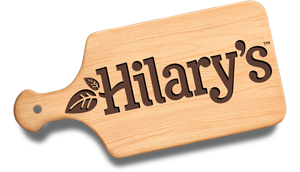Got “Gluten-ed” Now What

It happens to the best of us, you try your best to avoid gluten and all cross-contamination but sometimes things just happen. You take a bite of something you thought was gluten free at a friends house, or you realize after a few bites into a meal that there was flour in the sauce, or the kitchen at the restaurant cross-contaminated your food accidentally.
Regardless of how it happened, you got “gluten-ed” so now what should you do?
First let’s start with what is actually going on in your body when are exposed to gluten accidentally. People with celiac disease can experience varying symptoms and degrees of discomfort when they have an exposure, but the most common symptoms typically look something like this:
- Fast onset GI pain or cramping/bloating
- Delayed onset GI pain or cramping/bloating
- Frequent bowel movements
- Joint Pain
- Itchy Skin/Hives
- Brain Fog, Insomnia, Fatigue
- Mood Changes
These symptoms can typically last for a few days, and can result in other GI symptoms such as constipation. While some people may have very strong reactions to a gluten exposure, others may have silent symptoms that go unrecognized, however what is happening in the body is consistent. When someone with celiac disease is exposed to gluten an inflammatory reaction is triggered by the protein gliadin found in wheat, rye, and barley that causes damage to the lining of the intestine, which affects absorption of key nutrients.
What Can You Do If You Are “Gluten-ed”
Unfortunately, you can’t take back the gluten exposure, however you can help support your body over the next few days to alleviate as much discomfort as possible, and help support your body in recovering and getting back to normal after that exposure.
As a registered dietitian these are my go-to recommendations for all of my celiac/gluten-sensitive clients to focus on when they have been exposed to gluten to help them feel there best as soon as possible:
- Hydrate, Hydrate, Hydrate: We want to keep your digestive system moving and get the gluten out of you body as quickly as possible. Especially if you are having diarrhea, it is important to focus on staying hydrated and maintaining a good electrolyte balance. Try drinking some coconut water in addition to regular water for a healthy electrolyte replacement.
- Use Digestive Enzymes: Digestive enzymes are great for helping people with are variety of GI issues digest their food a little bit better. These enzymes mimic those naturally occurring in our body and help to breakdown macronutrients, and may make digestion easier and reduce symptoms during this period of time after a gluten exposure.
- Consume Easy To Digest Foods: When your body is recovering from a gluten exposure your digestive system is not going to be working in top form. So focus on including more easy to digest foods in the form of cooked vegetables, smoothies, and pureed soups. This will give your body a little time to adjust before overloading it with a giant raw salad that will be difficult to digest.
- Avoid Alcohol: We want to reduce the amount of inflammation in your body as much as possible, which means that you may want to avoid alcohol for a few days. Alcohol can affect our body’s digestion even on good days, so it’s best to lay off the booze if you have been exposed and let you body fully recover before consuming more alcohol.
We know that being exposed to gluten is not fun and most of the time it happens entirely unintentionally, even when you are careful. Avoid getting stressed about the exposure, which will only make the digestive distress worse, and instead focus on implementing some of these tools to help you feel better faster.

Megan Faletra, MS, MPH, RDN, is a integrative dietitian, food-allergy specialist, and founder of The Well Essentials, a sustainable healthy living brand dedicated to empowering people to change the way they choose to consume to support a healthier body and planet. Megan also runs a virtual nutrition counseling practice from Boston, MA where she works to help improve her clients health and relationship with food through personalized nutrition counseling. She has been featured in countless publications including: Forbes, Rodales Organic Life, The Huffington Post, and many more. When she is not working you can find her traveling, hiking, doing yoga, and cooking something up in the kitchen…her favorite room in the house.

